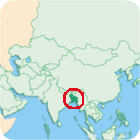 The economy of Bangladesh is largely dependent on agriculture. This sector contributed about 20% to the country’s GDP and about 84% of the total population live in rural areas and are directly or indirectly engaged in a wide range of agricultural activities. The situation and the topography of Bangladesh make it an excellent habitat for the rice plant which is therefore the most important crop of the country.
The economy of Bangladesh is largely dependent on agriculture. This sector contributed about 20% to the country’s GDP and about 84% of the total population live in rural areas and are directly or indirectly engaged in a wide range of agricultural activities. The situation and the topography of Bangladesh make it an excellent habitat for the rice plant which is therefore the most important crop of the country.
Breeding research in Bangladesh began 30 years ago. The National Agricultural Research System (NARS) is composed mainly of public educational research institutions. There are also several private firms now working in Bangladesh.
Plant breeding research focuses mainly on line development and evaluation. Rice and wheat breeding are well developed in Bangladesh and utilize mainly local germplasm. On the other hand, 100% of maize germplasm has been introduced through multilateral agreement with CIMMYT. Therefore, maize breeding is largely dependent on international cooperation and assistance.
The problem of infrastructure and limited training in biotechnology to carry out advanced breeding research are the most limiting factors for all the institutions. Thus, training of manpower on biotechnology at advanced laboratories should play a vital role for crop improvement.
Research and education institutes with activities in plant breeding
Public Institutes
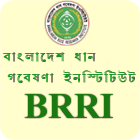 |
BRRI is a governmental organization engaged in research for improvement and production technology exclusively for rice. The institute assigned three research division’s viz. (1) Plant Breeding, (2) Genetic Resources and Seed, and (3) Biotechnology for rice breeding research under the Varietal Development Program (VDP). Conventional breeding approaches have been followed and biotechnology added only in the recent past to accelerate the breeding process.
|
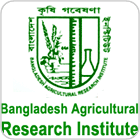 |
BARI is the biggest public research organization, involving all the crops of Bangladesh except rice, sugarcane, cotton, tea and jute. The institute is the pioneer of conventional breeding, but biotechnology is in its infancy. As a multiple crops research institute, it has many research divisions and sections. Each division/section is assigned to certain crops for improvement. The Plant Breeding Division has been conducting research on cereal crops including maize, sorghum, barley and millet.
|
 |
BSMRAU is a public institution of the government of Bangladesh. It has a Department of Genetics and Plant Breeding; however there is limited research on breeding – with only involvement of research on rice.
|
 |
BAU is a pioneer education centre for agriculture in Bangladesh. This public University has developed and strengthened with skilled manpower. The university has been working on several important crops grown in the country.
|
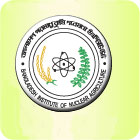 |
BINA is a public organization concerned with mutation research. The institute conducted research on ground nut, jute, chickpea and tomato. It has a staff including breeders and experts on mutation and biotechnology as well.
|
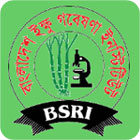 |
BSRI is a public organization which works only on sugarcane. It has developed more than 25 sugarcane varieties, mostly through introduction. The breeding department has limited manpower positions and biotechnology is still in its infancy at this centre.
|
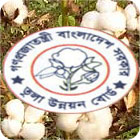 |
CDB is now joined the National Agricultural Research System. The research of Cotton breeding is progressed at a very slow speed. The organization developed six cotton varieties. The exchange of Bt cotton is under process. The cotton board has three sub-centres in the country for evaluation of materials.
|
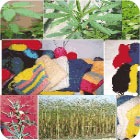 |
BJRI is a public organization dedicated to research on the jute crop. The institute has five breeders and has developed 14 Jute varieties. Main emphasis is on fiber quality and fiber products.
|
Private Institutes
 |
Metahelix is an agricultural biotechnology company focusing on developing traits and technologies for crop protection and improved productivity. Metahelix leverages its expertise in crop genetics and plant biotechnology to develop high performance hybrid seeds in rice, maize, cotton and millets for Indian markets with transgenic traits for insect, viral and fungal protection traits.
|
 |
GETCO Seed
Website available in English
GETCO is a private limited company. The Group GETCO Agro Vision Ltd. (GAV) produce high quality F1 Hybrid, OP and organic seeds of vegetables, potato, rice, maize, herbs, and flowers for domestic consumption and export. GAV has setup RandD center for select good quality seeds as required under a particular environmental condition. In the near future GAV plans to setup tissue culture laboratory.
|
 |
East-West Seed is an international organization and the one of the first private seed company in Bangladesh. It is performing breeding research on several crops, excluding rice. Their main effort is on horticultural crops and maize. The company has taken steps to apply modern breeding tools and establishing laboratory facilities. The company pursues international cooperation to strengthen its laboratory and green house facilities.
|
_________________________________________
Information by Muhammad Absu Salam (2007) - Information based on the Bangladesh's full report from the PBBC survey. Last revised 20-07-2009, GIPB
 The economy of Bangladesh is largely dependent on agriculture. This sector contributed about 20% to the country’s GDP and about 84% of the total population live in rural areas and are directly or indirectly engaged in a wide range of agricultural activities. The situation and the topography of Bangladesh make it an excellent habitat for the rice plant which is therefore the most important crop of the country.
The economy of Bangladesh is largely dependent on agriculture. This sector contributed about 20% to the country’s GDP and about 84% of the total population live in rural areas and are directly or indirectly engaged in a wide range of agricultural activities. The situation and the topography of Bangladesh make it an excellent habitat for the rice plant which is therefore the most important crop of the country.










